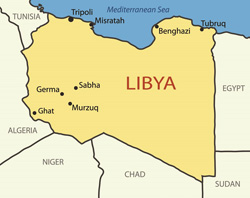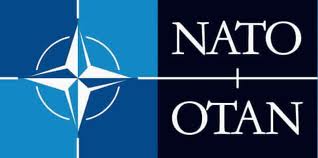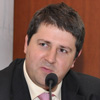Armenia Takes Leading Position in CSTO[Over]  By Benyamin Poghosyan, PhD, Executive Director, Political Science Association of Armenia By Benyamin Poghosyan, PhD, Executive Director, Political Science Association of Armenia
An Armenian general is now at the helm of the CSTO military alliance. This may prove to be a double edged sword for Armenia.
The South Caucasus is one of the battlefields in the current Russia-West confrontation. As a part of the former Soviet space, the region is perceived by Russia as an area of its legitimate "special interests." For the West, including the United States, NATO and the EU, the view of the region is defined by its role as a key transit route for Caspian energy resources to reach Europe circumventing Russia, and as an important gateway to exert influence in the nearby Middle East. Regional geopolitical competition is further complicated by the onset of Iran and Turkey. READ MORE
New Russian Order in the Middle East?[Over]  By Dr.Cyril Widdershoven, EGF Affiliated Expert, Military geopolitics By Dr.Cyril Widdershoven, EGF Affiliated Expert, Military geopolitics
Military environment in the Mediterranean is changing according to the chess plans of Russia’s leader Vladimir Putin. After bridging the immense opposition Russia was encountering during and after the demise of the USSR, a new Russian influence sphere has been built up of unforeseen order. It how the situation is perceived by Western leaders and military experts.
Re-emergence of Russian military assets and bilateral and multilateral relations with Arab countries is now being substantiated by the set-up of new military alliances in and around the Mediterranean. READ MORE
What Can We Expect from 2017 in the Settlement of the Nagorno-Karabakh Conflict? - UPDATED[Over]  Interview with Azenglishnews.com by George Vlad Niculescu,
Head of Research, the European Geopolitical Forum
Interview with Azenglishnews.com by George Vlad Niculescu,
Head of Research, the European Geopolitical Forum
I would hope to see the year 2017 becoming a watershed in the Nagorno-Karabakh (NK) conflict resolution. To that end, one essential requirement is for the conflicting parties to identify a political compromise that would underpin the conclusion of a peace agreement on Nagorno-Karabakh. It is deemed widely that the inability to produce a resolution on the Nagorno-Karabakh conflict so far was, to a large extent, linked to the dilemma regarding the prevailing legal and political principles that would be applicable. READ MORE
- February 22, 2017 04:22AM
EGF convenes high level expert seminar on Nagorno-Karabakh conflict resolution in Tbilisi[Over]
On 22 July 2015, EGF convened a further dialogue event between Armenian and Azerbaijani experts in its ongoing sequence on "What the South Caucasus Region Could Be: Exploring the Role of Economic Initiatives as Peace Building Tools in the Nagorno-Karabakh Context" in Tbilisi (Georgia). Similar to previous events of this nature held in 2014, the Tbilisi meeting unfolded in a constructive atmosphere and aimed to assess the role of economic initiatives in building peace in the Nagorno-Karabakh context. READ MORE
Uzbekistan President Karimov’s long-term vision of a Central Asian Nuclear Weapons Free Zone is now much closer to realisation[Over] 
 Snapshot analysis by Ben McPherson, Principal Editor, European Geopolitical Forum
Snapshot analysis by Ben McPherson, Principal Editor, European Geopolitical Forum
In May 2014 an important initiative, the Central Asian Nuclear Weapon Free Zone, or CANWFZ, was enshrined by the actions of five nuclear states—the United States, the United Kingdom, France, China and Russia—as they signed a Protocol agreeing to respect the non-proliferation framework. The idea has been discussed since at least 1993, when the President of Uzbekistan, Islam Karimov, proposed it at the UN General Assembly. READ MORE
Sailing the Unsettled South Caucasus through Troubled Waters towards Regional Integration[Over]  George Vlad Niculescu,
George Vlad Niculescu,
Head of Research, the European Geopolitical Forum
Just like other parts of Eurasia, the South Caucasus is facing the challenge of a renewed East-West geopolitical competition underpinned by three evolving challenges: 1) a growing ideological gap between Russia and the West; 2) the chronic persistence of protracted conflicts; 3) the dilemma of post-Soviet states: European vs. Eurasian integration. More specifically, the South Caucasus geopolitical landscape is shaped by: READ MORE
- November 25, 2014 20:56PM
Uzbekistan speaks out on post-2014 Afghanistan security[Over]  Dr Oktay F. Tanrisever, Dr Oktay F. Tanrisever,
EGF Affiliated Expert
PRESS-RELEASE FROM THE EMBASSY OF THE REPUBLIC OF UZBEKISTAN TO THE KINGDOM OF BELGIUM AND THE MISSIONS TO THE EU AND NATO

The position of Uzbekistan on Afghanistan as voiced by the President of the Republic of Uzbekistan Islam Karimov at the CIS summit in Minsk on 25 October 2013
“…the upcoming withdrawal of ISAF - international peacekeeping forces from Afghanistan by the end of 2014, without any doubt, will be a serious test for the countries bordering Afghanistan and other surrounding areas. READ MORE
What Kind of Sovereignty? Examining Alternative Governance Models in the South Caucasus[Over] 8th Workshop of the PfP Consortium Study Group “Regional Stability in the South Caucasus”
On 07-09 November 2013, Mr. George Niculescu, the Head of Research of the European Geopolitical Forum, attended the 8th Workshop of the PfP Consortium Study Group “Regional Stability in the South Caucasus”, held in Reichenau (Austria). Mr. Niculescu moderated the panel on “Alternative Models of Sovereignty in Practice” aiming to propose practical solutions for “joint political and administrative” governance in the South Caucasus. Distinguished panelists from Armenia, Azerbaijan, Germany and the United Kingdom put forward their thoughts on the subject, while the audience consisting of officials and experts from regional and international think tanks, education institutions, and civil society actively debated panelists’ proposals. Mr. Niculescu concluded that: “Rather than trying to impose unilateral solutions involving the final status of the unrecognized political entities in the South Caucasus, regional states and relevant international actors should rather focus creative energies on setting up transitional processes aimed at achieving multilateral governance over the regional commons. Moreover, as suggested by lessons learned in the Western Balkans, region building strategies should effectively complement international efforts for conflict transformation. However, a champion for regional integration is still missing in the South Caucasus. Potentially, the EU could revitalize its involvement in strengthening regionalism in the South Caucasus in strategic coordination with Russia and Turkey“. Click here to see an outline of the workshop and here to see the ensuing policy recommendations.
Building Confidence in the South Caucasus: Strengthening the EU’s and NATO’s Soft Security Initiatives[Over] 7th Workshop of the PfP Consortium Study Group “Regional Stability in the South Caucasus”
On 14-16 March 2013, George Niculescu, our Head of Research, attended the 7th Workshop of the PfP Consortium Study Group “Regional Stability in the South Caucasus”, held in Tbilisi (Georgia). Mr Niculescu briefed a distinguished audience consisting of government officials, representatives of the EU and NATO, as well as of experts from regional and international think tanks and civil society on the EGF research paper on "A Pragmatic Review of Nagorno-Karabakh Conflict Resolution: Could Economic Incentives Help Break the Current Stalemate?", published last October jointly with Dr. Marat Terterov. Mr Niculescu thus concluded that “the exit from the current stalemate in the resolution of the Nagorno-Karabakh conflict would require starting up discussion around economic issues, and that the next step to this end might aim at setting up a comprehensive dialogue among interested businesses and experts from the conflicting parties together with international actors on post-conflict scenarios involving joint regional energy and infrastructure projects.” To see the Policy Recommendations issued in the aftermath of this workshop please click here. To look at the full text of the briefing please click here, and click here for the Powerpoint presentation.”
NATO Strategic Operations in Post-Cold War Security Point to the Core Role of Partnerships in the Way Forward[Over]
 By George Niculescu, By George Niculescu,
Head of Research, The European Geopolitical Forum
Introduction
Since the end of the Cold War, the future of NATO has been a topic for debate among politicians, bureaucrats, scholars and journalists familiar with the European and global security issues. NATO’s future role within the newly evolving global security structure has been a particularly relevant topic for such debates. The North Atlantic Alliance has so far proven itself to be a flexible enough entity in relation to adapting itself to post-Cold War security realities in order to survive the bygone era of the 20th Century. Both political and military leaders of the Alliance have understood the key lesson learned from the fall in relevance of the Warsaw Pact after the collapse of the communism in Central-Eastern Europe: the continuous adaptation of NATO to the new security challenges is the only viable alternative to the Alliance’s disappearance from the geostrategic map. READ MORE
The "Global Swing States" thesis and the Future of the Black Sea Regional Order[Over]  By George Niculescu, By George Niculescu,
Head of Research, The European Geopolitical Forum
In November 2012, the German Marshall Fund of the United States and the Center for a New American Security published a series of papers built upon the "global swing states" concept launched by Daniel Kliman and Richard Fontaine in a report on: "Global Swing States: Brazil, India, Indonesia, Turkey and the Future of International Order". READ MORE
The OSCE’s ‘Asia Pivot’? Implications of the Mongolian Accession[Over]  Paul Pryce Paul Pryce
EGF Affiliated Expert on Conflict Management and the OSCE Institutions
On November 21st, 2012, a surprising announcement was made in Vienna. Mongolia had acceded as the 57th participating State of the Organization for Security and Cooperation in Europe (OSCE), the world’s largest regional security organization. Mongolia has effectively been an observer state since 2004, involved in the OSCE’s Asian Partners for Cooperation together with Japan, South Korea, Thailand, and Afghanistan. Contributing to the surprise of the announcement, the country’s bid for full participation in the work of the OSCE had only come in late October 2011, when the Lithuanian Chairmanship received a formal letter from the Mongolian government stating their willingness to comply fully with the terms of the Helsinki Final Act, the Charter of Paris for a New Europe, and other documents integral to the OSCE.
Click here to read more.
China and the Iranian Nuclear Crisis: Between Ambiguities and Interests[Over]  Djallil Lounnas, Djallil Lounnas,
EGF Affiliated Expert with focus on Insurgency and Trans-national radicalism in North Africa and Sahel-Sahara
This article analyses, the complex relationship between Tehran, Beijing and Washington on the Iranian nuclear issue. Indeed, China’ policy towards Iran has often been described as ambiguous, in supporting Washington, on the one hand, while protecting Tehran, on the other hand. In this article, we argue that, in fact, Beijing policy vis-a-vis Tehran depends on the state of its relationships with Washington. Indeed, a closer analysis shows that China is using Iran as a bargaining chip with the United States on, among others, two key security issues, i.e., Taiwan and the oil supply. The guarantee of a secured oil supply from the Middle-East in addition to a comprehensive policy of the US with regard to Chinese security interests in Taiwan as well as the use of smart sanctions against Tehran, which would thus take into account, to a certain extent, Beijing economic interests in Iran, are, indeed, the guarantee of Beijing’ support to the US policy towards Iran. Click here to read more.
The Deadlock in the Karabakh Negotiations: A Possible Way Forward[Over] 
Dr Beniamin Poghosyan
Deputy Director, Institute for National Strategic Studies, MOD, Armenia
Executive Director, Political Science Association of Armenia
The Karabakh conflict negotiation process is in an obvious stalemate after the apparent failure of the Kazan summit which took place last June. Three-years of mediation efforts by Russian President Dmitry Medvedev accompanied by efforts of the Minsk Group’s two other Co-chair-state-leaders have delivered no results. The much anticipated breakthrough which should have taken place at the Kazan trilateral summit was transformed into a half page statement with no concrete steps and decisions. President Medvedev’s further efforts to move the process through bilateral meetings with Azerbaijani and Armenian Presidents did not bring any meaningful results. Meanwhile, the situation in the front line is deteriorating mainly due to Azerbaijani snipers deadly attacks and retaliatory actions of Karabakh Armed Forces. READ MORE
Five good reasons to be sceptical about the ‘Arab Spring’[Over]  by Marat Terterov, by Marat Terterov,
EGF Director
When a game breaking event takes place in the Middle East once each decade
There is a certain understanding amongst Middle East politics experts that a game breaking event of cataclysmic proportions hits the region once every ten years or so. September of this year will mark the 10th anniversary of the unimaginable acts of terrorism which were perpetrated in New York in September 2001 by Arab suicide bombers. These acts of violence catapulted America’s ‘War on Terror’ to the centre of Washington’s foreign policy agenda, opening the way for renewed civil war in Afghanistan and the US-led invasion of Iraq of 2003. READ MORE
The Political Challenges Confronting post-Gaddafi Libya[Over] 
By Naim Ameur,
Senior Manager, Prime Ministry of Tunisia
EGF Affiliated Expert on Maghreb politics
The Particularity of the Libyan Revolution
The success of their Tunisian and Egyptian neighbors in their peaceful revolutions encouraged the Libyan people to end the dictatorship of Colonel Muammar Gaddafi who kept his country underdeveloped and deprived of the natural resource wealth during 42 years. READ MORE
The Changing Dynamics of the Wider-Black Sea in Regional Security and External Relations[Over] Executive Summary
On Monday, May 16, 2011, The European Geopolitical Forum staged a roundtable discussion on the
“Changing Dynamics of the Wider Black Sea in Regional Security and External Relations” at the Brussels
School of International Studies, University of Kent. The roundtable featured key international speakers: Dr.
Andrej Kreutz (Canada), renowned international relations specialist and author of the recent book, “Russia
in the Middle East: Friend or Foe?”; and Igor Muradyan (Armenia), an acclaimed public commentator on
the geopolitics and geo-economics of the Black Sea-Caucasus-Caspian area. The roundtable discussion also
drew participation of officials from the Turkish Embassy in Belgium, NATO International Staff Political
Affairs and Security Policy Division (IS PASP), the Mission of Ukraine to European Union, the Permanent
Mission of the Russian Federation to NATO, the Energy Charter Secretariat, TUSIAD, the Armenian
Federation of Europe, the Centre for East European and Asian Studies (Romania) and several other
interested stakeholders. READ MORE
The Marrakesh bombings and Morocco’s precarious security environment[Over] Morocco’s stable security image shattered in April
Morocco witnessed a severe blow to its external image as one of the more stable and least dangerous North African Maghreb countries at the end of last month, when an apparent suicide bombing in the city of Marrakesh led to the deaths of 17 persons, including a number of foreign nationals. The fatal blast, which took place in a café in Marrakesh’s iconic Djemaa el-Fna square (a Unesco World Heritage site popular with European tourists) on April 28, was the first major, apparent act of terrorism in the country since the 2003 bombings in Casablanca which killed up to 45 people. READ MORE
EGF Forum Outlook: regime change and domino effect in the Middle East – who next, how soon?[Over] February 21, 2011
The year 2011 has commenced with unprecedented levels of political turmoil, violence and tension in the Middle East. While this will not necessarily come as a surprise to readers of our previous research on the region, the fact that the Tunisian and Egyptian presidents have been dismissed from power barely within weeks of one another as a result of wide-scale street demonstrations in these two countries, clearly implies that the region has once again entered into a “game breaking” situation. As violence and further protests continue to spread rapidly across the region, the key question of concern to governments, investors and Middle Eastern ruling elites is now which regime is likely to fall next ? Despite the often overlooked heterogeneities of the region, the dramatic events already having taken place in Tunisia and Egypt in the first weeks of 2010 have inspired a domino effect of protests. Demonstrations of varying degree of magnitude are presently engulfing Bahrain, Yemen, Libya, Algeria, Morocco and Iran. They have also taken place in Jordan, while smaller scale demonstrations were planned in Kuwait. While other states across the Middle East are reporting less protest activity, the threat that the Egyptian-Tunisian contagion is posing to the region as a whole cannot not be underestimated. READ MORE
Moscow Domodedovo airport terror act: between shallow security and social unrest[Over] Mikhail Roshchin, EGF Affiliated Expert
While many in Russia have become accustomed to gas disputes with Ukraine as the flagship event hailing in the New Year, the start of 2011 brought with it a far more tragic security crisis when a major bomb blast ripped through the crowded halls of Moscow’s Domodedovo airport. The attack occurred in the arrivals area of the airport at 4.32 pm, on 24 January 2011, claiming the lives of 36 individuals and injuring 116 more. An act of terrorism was immediately assumed by many security experts, possibly involving a suicide bomber, who employed an explosive device containing 5-7 kilogrammes of Trinitrotoluene (TNT). Among the victims was Anna Yablonskaya, a 29-years-old Ukrainian playwright and poet who had come to Moscow to receive a prize from the magazine Art of the Cinema for her recent play. This attack follows the March 2010 suicide bombing in which two women, originally from Dagestan, blew themselves up in Moscow’s underground causing the death of 40 commuters. As was the case in the March 2010 attack, separatist-terrorists from the Russian North Caucasus were suspected of involvement in the Domodedovo attacks. These suspicions appeared to be confirmed earlier this month, when Chechen rebel leader, Doku Umarov, claimed responsibility for the bombing on February 4. In his video broadcast confirming responsibility for the attack, Umarov justified his actions on the basis of Russian state policy in the North Caucasus. READ MORE
Bringing Russia into NATO: A Trojan horse in the making[Over] EGF Editorial
Is there any logic behind suggestions aired by senior decision makers, both past and present, that Russia could one day become a member of the North Atlantic Treaty Organisation (NATO)? At first glance, Russian membership to NATO may seem as a suggestion bordering on the absurd, given the history of relations between East (Russia/the Soviet Union) and West (the Euro-Atlantic bloc), as well as the fact that “Cold War warriors” are still in positions of power and influence on both sides of the former-Iron Curtain. That being said, the prospect of Moscow joining the NATO alliance has been implied publically by former-Russian presidents, Boris Yeltsin in 1991, Vladimir Putin in 2000, and by former-NATO Secretary-General, Lord Robertson, at a high level political conference in the Russian city of Yaroslavl just last September. READ MORE
- February 10, 2011 11:14AM
EGF Expert Comment[Over]
Mikhail Roshchin
Expert on Radical Islam in the Russian North Caucasus
The Attack on the Chechen parliament in Grozny: Jihad becomes a significant element of everyday life in the Russian North Caucasus
On the morning of 19 October 2010, Chechen Jihadists attacked the parliament building in Grozny, the capital of the Chechen Republic, in the North Caucasus region of the Russian Federation. Six people were killed, including two police officers, one parliament employee and three Jihadists. The attack took place as Russian Interior Minister, Rashid Nurgaliev, was visiting Chechnya. Also at the time of the attack, the chairman of the Chechen parliament, Dukwaha Abdurahmanov, was in discussions with a visiting delegation from the Legislative Assembly of Sverdlovsk Region (in Central Russia). The fact that the attack was timed with the presence of the Russian Interior Minister in Grozny, strongly suggests that the rebels are supported by persons from within the Chechen government structures. It is thus highly likely that the attack was planned carefully and planned from the inside. According to Igor Danilov, a member of the Sverdlovsk delegation, the gun battle between jihadists and the Chechen security forces lasted as long as one hour.
Furthermore, a number of experts on the region have suggested that the attack was orchestrated under the leadership of Hussein Gakaev, a Chechen field commander who opposes the position of Chechen Jihadist leader, Dokka Umarov, as Emir of the self-proclaimed Caucasus Emirate. Gakaev, in his position of refusing to recognize Umarov’s authority, is himself supported by two other leading field commanders of the Chechen Jihad (one Chechen, Aslambek Vadalov, the other Arab). It is worth recalling that on 29 August of this year, Hussein Gakaev and his followers organized an attack on the childhood home of the current president of the Chechen Republic, Ramzan Kadyrov: the village of Tsentoroi. Taking into account these two attacks, which were seemingly perpetrated by Gakaev and his followers, we can deduce that genuine political instability continues to prevail in Chechnya at present, as well as in the wider-North Caucasus region of Russia as a whole. These unsavory incidents, and particularly yesterday’s brazen attack on the Chechen parliament, provide further evidence that Jihad has become a significant element of everyday life in this unruly region of the Russian Federation.
Click here to read Mikhail Roshchin’s recent article on The Caucasus Emirate and the Movement of the Military Jamaats
- November 30, 2010 05:56AM
The EU-Russia Energy Partnership: Overcoming the Challenges[Over] The energy trade between Russia and the countries of the European Union (EU) is of fundamental significance for the energy security of each party. Despite the close proximity of the EU-Russia energy relationship, however, the legal and political basis underpinning this relationship, particularly with regards to the gas trade, has proven itself inadequate in guaranteeing the energy security of both parties. Russia's recent announcement of its intention "of not becoming a member" of the Energy Charter Treaty, and new proposal for global energy security has created further uncertainty. While it is hoped that a new government in Kiev will lead to an improvement of Russian relations with Ukraine, Ukraine's national gas transportation operator remains in a difficult financial position and another gas crisis embroiling Ukraine, Russia and the EU, whilst hardly imminent, cannot be entirely ruled out.
Leading Russian and international energy professionals have shared their views on these energy policy challenges in an online session. Click here to go into the discussions or here to view forum summary
|
|


